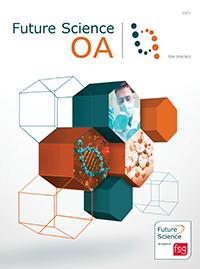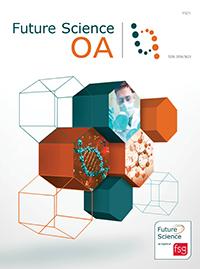
Credit: Future Science Group
Induced pluripotent stem cells (IPSCs) hold great promise in regenerative medicine, personalized medicine and drug discovery. However, while avoiding the ethical controversies associated with embryonic stem cells, they carry neoplastic risk owing to the use of the oncogenes c-Myc and Lin28. This has limited their utility in the biomedical arena.
Work has previously demonstrated that IPSC generation can be uncoupled from c-Myc, but until now a viable oncogene- and virus-free method has proven elusive.
A new research article from Alan B Moy and colleagues at Cellular Engineering Technologies (IA, USA) and The John Paul II Medical Research Institute (IA, USA) describes a promising new IPSC reprogramming approach that attempts to solve these issues. The open access article, "Efficient method to create integration-free, virus-free, Myc and Lin28-free human induced pluripotent stem cells from adherent cells", is available in Future Science OA.
Their approach saw adherent fibroblasts reprogrammed using a combination of reprogramming molecules and episomal vectors. The combinatorial approach was successful, yielding colonies in which 100% expressed SSEA4.
"Our reprogramming method provides patient- and disease-specific IPSC[s] for drug discovery and personalized medicine applications with lower risk of oncogenic perturbations due to Lin28 and Myc", noted the authors. "The reprogramming method paves a pathway for autologous and allogeneic cell therapy that satisfies regulatory requirements."
The team anticipates that virus- and oncogene-free IPSCs could advance cell therapies, diagnostics and personalized medicine. Furthermore, they envision the technology helping to reduce clinical trial failure rates and improve drug development.
###
Available from: http://www.future-science.com/doi/full/10.4155/fsoa-2017-0028.
About Future Science OA
Launched in March 2015, Future Science OA is the inaugural gold open access journal from Future Science Group. It publishes articles covering research of application to human health, and utilizes a CC-BY license. Future Science OA embraces the importance of publishing all good-quality research with the potential to further the progress of medical science. Negative and early-phase research will be considered. The journal also features review articles, editorials and perspectives, providing readers with a leading source of commentary and analysis.
About Future Science Group
Founded in 2001, Future Science Group (FSG) is a progressive publisher focused on breakthrough medical, biotechnological, and scientific research. FSG's portfolio includes two imprints, Future Science and Future Medicine. In addition to this core publishing business, FSG develops specialist eCommunities. Key titles and sites include Bioanalysis Zone, Epigenomics, Nanomedicine and the award-winning Regenerative Medicine.
The aim of FSG is to service the advancement of clinical practice and drug research by enhancing the efficiency of communications among clinicians, researchers and decision-makers, and by providing innovative solutions to their information needs. This is achieved through a customer-centric approach, use of new technologies, products that deliver value-for-money and uncompromisingly high standards. http://www.futuresciencegroup.com
Media Contact
Danielle Courtney
[email protected]
@futuresciencegp
http://www.future-science-group.com/
############
Story Source: Materials provided by Scienmag





